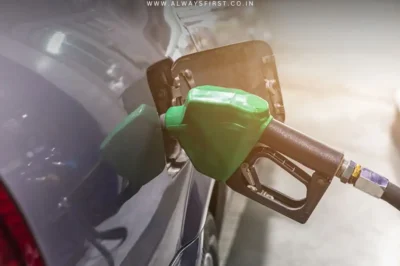Key Takeaways:
✔ Minor Mileage Drop: E20 petrol may reduce fuel efficiency by 1-6%, depending on vehicle compatibility.
✔ No Major Engine Damage: Scientific studies refute claims of significant harm; only minor part replacements may be needed in older cars.
✔ Eco & Economic Benefits: Ethanol blending cuts emissions, supports farmers, and reduces India’s fuel import costs.
E20 Petrol & Mileage: Separating Fact from Fiction
Recent discussions around E20 petrol—a blend containing 20% ethanol—have raised concerns among vehicle owners. Many worry that this fuel reduces mileage and could damage engines and fuel tanks. However, the Ministry of Petroleum and Natural Gas has stepped in to address these claims, providing clarity on what drivers can actually expect.
Does E20 Petrol Reduce Fuel Efficiency?
Ethanol has a lower energy density than pure petrol, meaning it can lead to a marginal drop in mileage. However, the government emphasizes that this impact is far less severe than some fear.
- For E20-compatible vehicles (those calibrated for this blend), the mileage reduction is just 1-2%.
- For older models not optimized for ethanol blends, the dip could be around 3-6%—still not drastic.
Experts note that modern cars (manufactured post-April 2023) are designed to handle E20 efficiently, minimizing any efficiency loss. Additionally, fine-tuning engines and using ethanol-resistant components can further mitigate the difference.
Will E20 Damage Your Engine?
Despite rumors, the government confirms there is no scientific evidence that E20 causes major harm to engines or fuel systems.
- Older vehicles might require minor part replacements (like rubber seals or gaskets) after 20,000-30,000 km, but these are low-cost and part of routine maintenance.
- Newer, E20-ready cars face no additional wear or maintenance issues due to ethanol blending.
Why Is India Pushing for Ethanol-Blended Fuel?
The shift to E20 isn’t just about fuel—it’s a strategic move with economic and environmental benefits:
Reduced Emissions: Ethanol burns cleaner, cutting down CO2 emissions.
Farmers’ Income Boost: Ethanol is made from sugarcane and grains, supporting agricultural sectors.
Lower Import Dependency: India has already saved thousands of crores by reducing crude oil imports.
Final Verdict: Should You Use E20?
While E20 may cause a slight mileage drop in some vehicles, fears of severe efficiency loss or engine damage are overblown. With advancing automotive technology, even this minor drawback is expected to diminish further.
For the nation, ethanol-blended petrol is a win—promoting sustainability, energy security, and economic growth. So, the next time you fill up with E20, you can do so with confidence.









































Leave a Reply